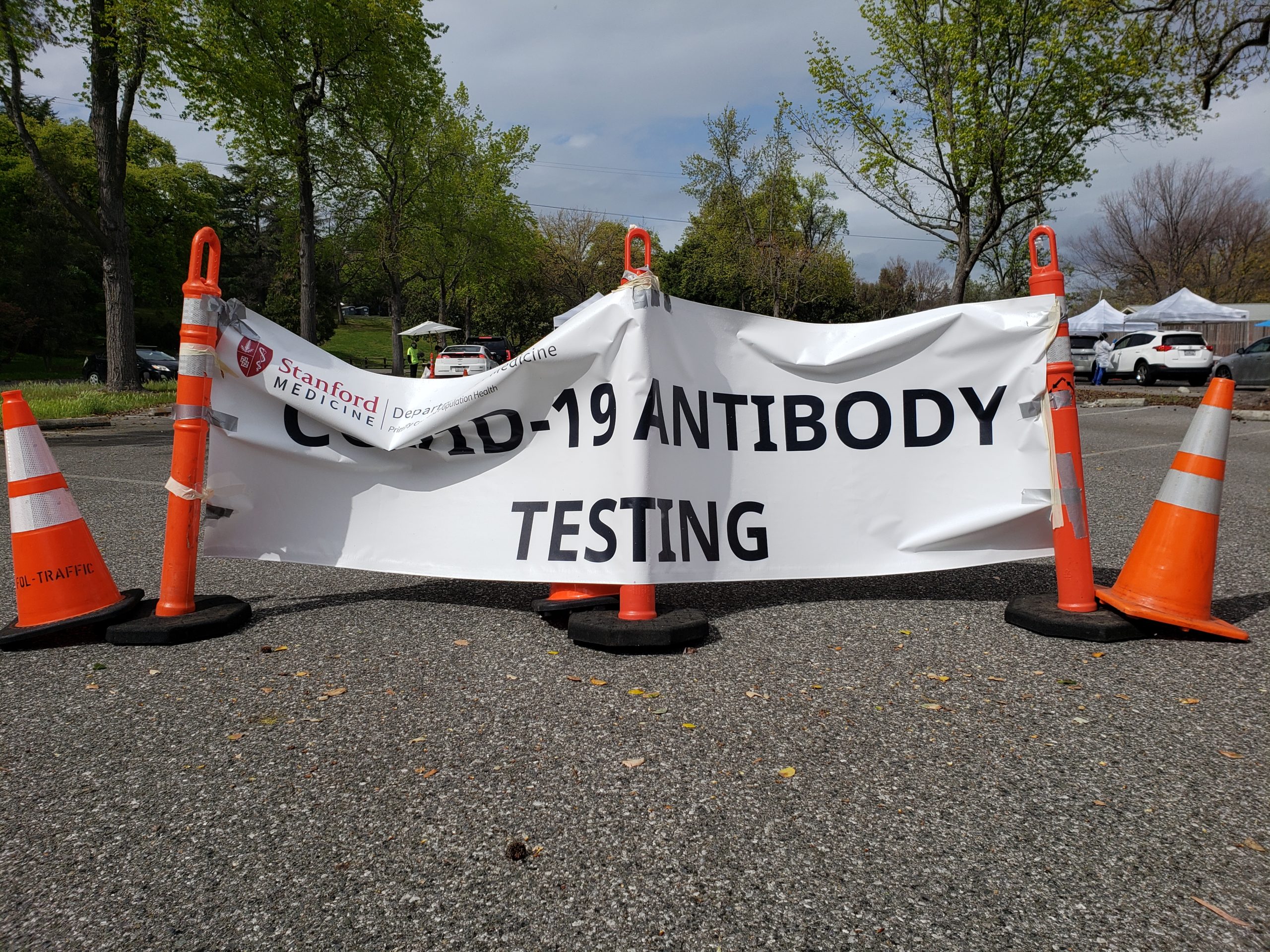Stanford researchers are conducting inpatient and outpatient clinical trials of Regeneron’s REGN-COV2, an experimental “antibody cocktail” administered to President Donald Trump.
Stanford researchers noted that many of the newest drugs Trump has access to are still being tested in clinical trials and are unavailable to most COVID-19 patients.
The University joins 84 sites across the country in conducting clinical trials of the REGN-COV2 drug. Early results from outpatient trials, in which the drug is administered to non-hospitalized COVID-19 patients, suggest that the drug may aid the recovery of patients with mild to moderate symptoms.
“Those who received the antibodies did much better in terms of having the amount of virus that they have come down quickly and having their symptoms resolved faster,” said infectious disease clinical professor Aruna Subramanian.
For the past three weeks, the School of Medicine has been administering the treatment intravenously to outpatients who have received their first positive COVID-19 test result within seven days of starting treatment.
The medical school is also conducting inpatient trials, which study the effects of the drug on hospitalized patients, but the results have not yet been released. Subramanian, who is the principal investigator in the inpatient clinical trial, said that she expects similar results to those of the outpatient trial.
REGN-COV2 is designed to boost patient immune systems by introducing two monoclonal, or cloned, antibodies — one copied from a recovered COVID-19 patient and another from a genetically modified mouse. The antibodies bind to spike proteins, which the virus uses to attach to host receptors, preventing the virus from interacting with human cells. The two antibodies target different parts of the virus, giving the immune system the ability to defend itself with a “one-two punch,” according to professor of pediatrics and health research and policy Yvonne Maldonado, who is codirecting the REGN-COV2 outpatient clinical trial.
Although the drug is still in the clinical trial stages of development and has not been authorized for emergency use, it is available through a “compassionate use” request, which is granted under rare circumstances on a case-by-case basis. The Food and Drug Administration (FDA) granted such a request to Regeneron which allowed Trump to have access to the drug. Trump was administered the maximum dosage of 8 grams, according to a statement released by the White House on Friday. In the clinical trials, patients are randomized to receive an infusion of 8 grams, 2.4 grams or a placebo.
“Eight grams is a lot of antibody to give somebody,” Maldonado said. “We generally don’t give that much protein infusion to people, and we still don’t know which one is more effective, and [Regeneron] is studying whether a lower dose would be as effective.”
REGN-COV2 is just one of several drugs that Trump took while in the hospital. In addition to the antibody cocktail, he received dexamethasone and remdesivir, an antiviral medication studied by Stanford researchers in April.
Clinical professor of infectious disease Shanthi Kappogoda, who has helped develop COVID-19 treatment guideline, said that doctors generally administer the remdesivir and dexamethasone treatments to patients who need significant supplemental oxygen or who have an abnormal chest X-ray.
“Remdesivir and steroids are the standard of care for a moderate to severe case of COVID-19 pneumonia,” Kappogoda said. “It seems that either he was really sick and he needed them still in the hospital or he wasn’t that sick and was getting them at an earlier stage.”
Subramanian criticized a tweet that Trump sent advising Americans not to let the virus “dominate your lives,” adding that even if Trump makes a full recovery, he should not be advising the country to take the virus lightly.
“Not everybody has access to [his treatment options],” Subramanian said. “He got them extremely early, and he got them when other sick people are only maybe getting placebo. We have had patients die on the study, and we don’t know the efficacy yet.”
Stanford researchers are seeking approval from the FDA to conduct another clinical trial of the REGN-COV2 drug, which they hope will begin within the next month. The trial would test the efficacy of the antibody drug on people who have been in “close household contact” with COVID-19 carriers, but who have not yet tested positive for the virus, according to Maldonado. The trial would test the short- and long-term efficacy of the drug’s potential to prevent infections in the first place.
Contact Tammer Bagdasarian at tbag ‘at’ stanford.edu.
